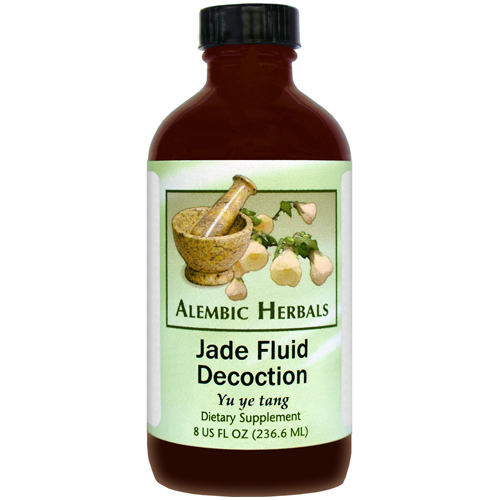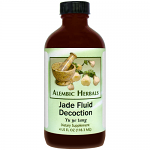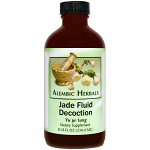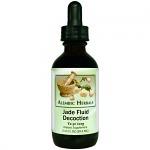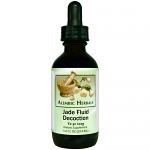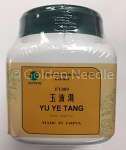| Description |
"Yu ye tang jia wei/Modified Jade Fluid Decoction is based on a relative modern formula developed by Zhang Xi-chun in the late Qing dynasty, i.e, the early 20th century. Dr. Zhang lived in a time of great transition in China, during the Republican era when Western medicine, science and culture were making great inroads into China, and he responded with his book of essays. His work emphasized the importance for traditional Chinese physicians to be rooted in the study of the principles in the medical classics such as the Su wen/Simple Questions and the Shang han lun/Treatise on Cold Damage. He also was influenced by the spleen/stomach school (current) of Li Dong-yuan, and many of the formulas included ingredients to supplement spleen qi and raise the clear yang with such medicinals as Huang qi (Astragalus root) and Ge Gen (Kudzu root). He emphasized integrating new discoveries and data of biomedicine from the West with Chinese medicine, but without compromising the essence of traditional practice. Along with the influx of Western culture, came an awareness of 'new diseases' such as diabetes otherwise known as xiao ke/dispersion (wasting) thirst. Dr. Zhang developed new formulas and treatments to meet the changing culture and its expressions of illness. The 'sophistication' of dietary trends in large cites often leads to increased consumption of alcohol, sweets, refined foods and animal products, which can contribute to this condition."* Z'ev Rosenberg: Clincial Guide for Practitioners Huang qi (Astragalus root) is sweet, warm, raises the clear yang {especially when combined with Ge gen (Kudzu)}, and secures the exterior. Tai zi shen (Pseudostellaria) supplements both qi and yin, lung and spleen. Bai Zhu (White atractylodes) is sweet, warm and acrid, supplementing the spleen, benefiting digestion, and disinhibiting dampness. Shan yao (Chinese yam) supplements the spleen and kidney, qi and yin, and secures the jing/essence. Zhi mu (Anemarrhena) clears heat from the upper burner, and generates fluids. It helps eliminate the accumulating heat associated with xiao ke/dispersion (wasting) thirst. Tian hua fen (Trichosanthes) is slightly bitter, sweet and cold, generates fluids, clears heat, and relieves vexation. Chen pi (Dried mature tangerine rind) regulates digestion, improves appetite, and resolves phlegm and dampness. Wu wei zi (Schisandra fruit) is sour and astringent, preserves the fluids, calms the spirit, strengthens lung qi, and enriches the kidneys. Shen qu (Medicated leaven) resolves food accumulation, improves digestion, and benefits the spleen and stomach. It also prevents the more yin nourishing ingredients in this formula from being cloying and causing indigestion."* - Rosenberg - Clincial Guide
|
